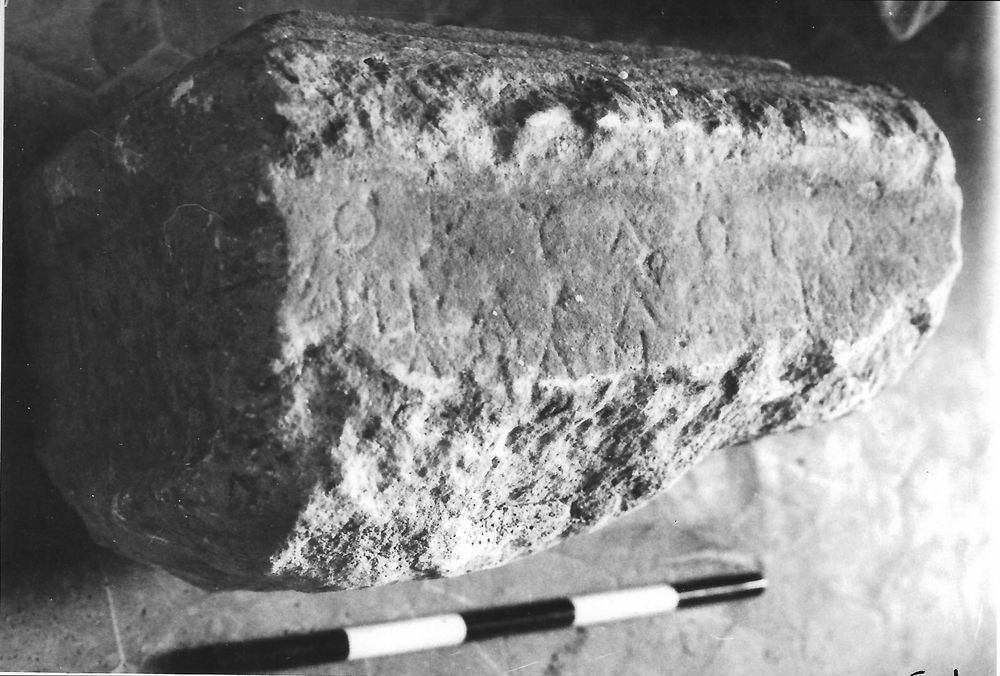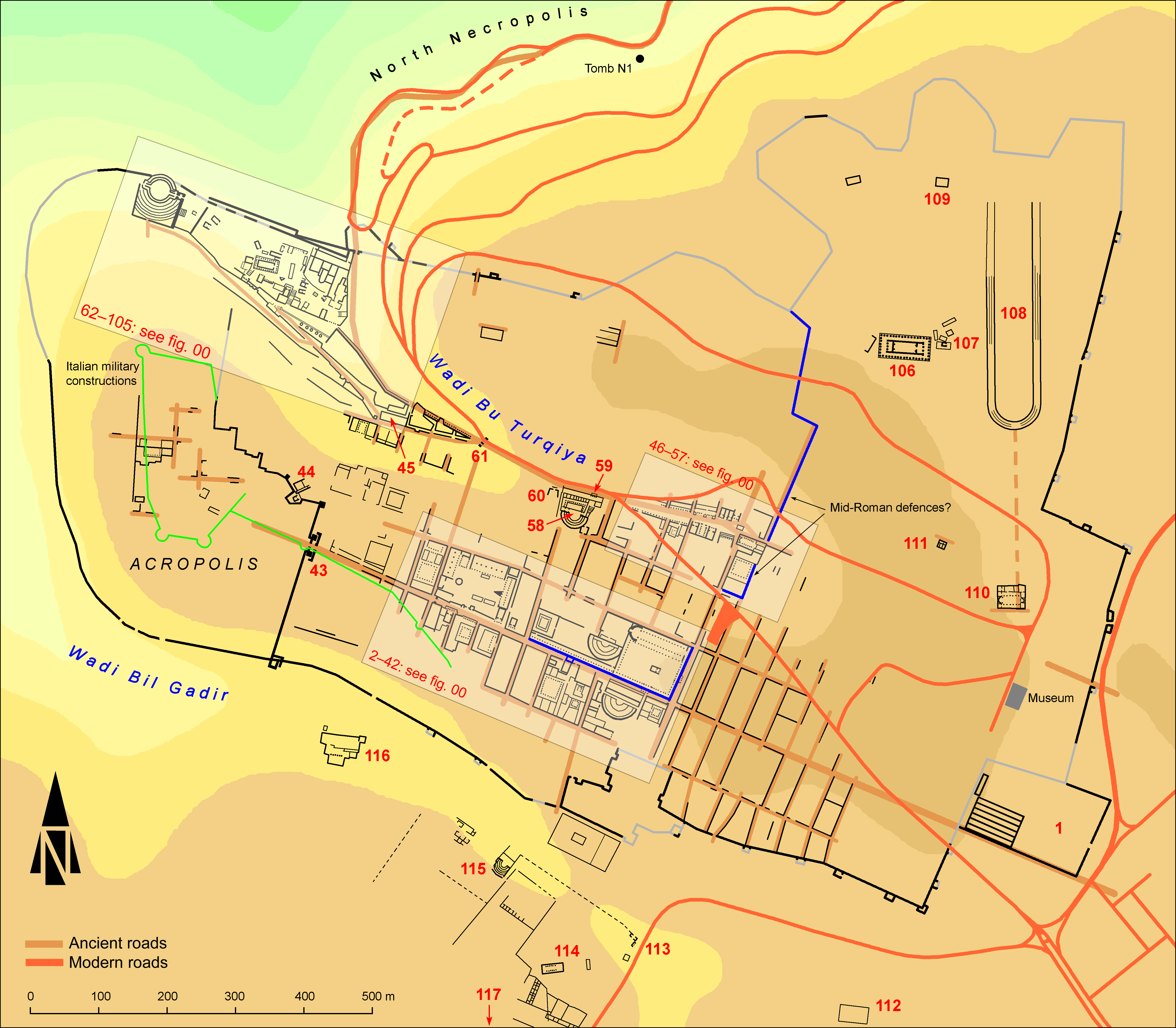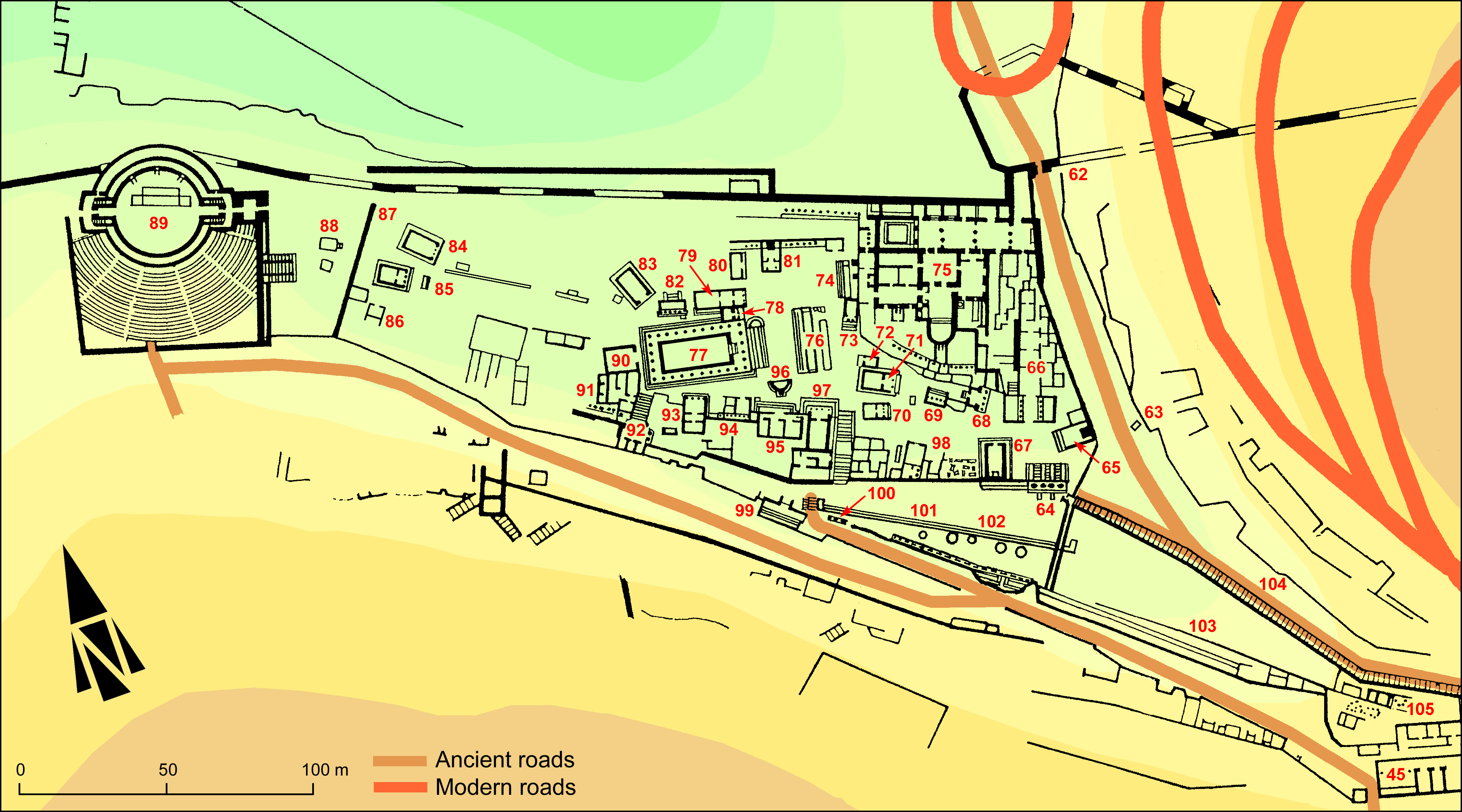EpiDoc XML:
IGCyr1011002
Trismegistos ID:
738523
Source description
Support: White marble base with plain mouldings on top and below on three sides, reddish from earth; probably re-used upside down later on, whence a dowel hole in the lower face; the front face is broken off below (w: 0.53 × h: 0.30 × d: 0.32).
Layout: Inscribed in three lines on front face (w: 0.49 × h: 0.105).
Letters: 0.025; no serifs, dotted theta, large circular letters, slanting sigma.
Date: Fourth century BC (lettering).
Findspot: Found by G. Oliverio not after 1938 at Cyrene ➚: Sanctuary of Apollo (so-called 'Piazzale' Oliverio).
Place of origin: Findspot.
Last recorded location: Cyrene Museum, 3372. Seen by C. Dobias-Lalou in 1982 and again 1997 in Shahat: Cyrene Museum.
Text constituted from: Transcription from stone (CDL).
Bibliography
Oliverio XV.54, whence SECir, 175 (no image); IGCyr 101100 ➚.
Cf. Chevrollier 2018-2019, p. 80, whence SEG 68.1742; Dobias-Lalou 2021, pp. 262-263.
Text
Apparatus
French translation
Theudôros fils d'Hèrakleitos (scil. a consacré ce monument) à Athèna.
English translation
Theudoros son of Herakleitos (scil. dedicated this monument) to Athena.
Italian translation
Theudoros figlio di Herakleitos (scil. ha dedicato questo monumento) ad Atena.
Commentary
This inscription was known to Pugliese Carratelli only through a drawing of Oliverio's, not provided in the publication.
The condition of the stone, observed again in 1997 by C. Dobias-Lalou, was worse than in 1982, so that line 3 is now completely lost. But the photograph and squeeze made in 1982 allow a better reading at that line. The name of the dedicant has a dialectal form, as well as the ending of his father's name. This would be surprising if he was an Athenian. Moreover, the faint traces of alpha and iota at the end of the line and the space at left before the first letter make much more plausible a shorter restoration, namely the name of the goddess Athena: the base was a dedication and was placed where she was worshipped inside Apollo's sanctuary.
CC BY-NC-SA 4.0 Deed Attribution-NonCommercial-ShareAlike 4.0 International License.
All citation, reuse or distribution of this work must contain a link back to DOI: https://doi.org/10.60760/unibo/igcyrgvcyr2 and the filename (IGCyr000000 or GVCyr000), as well as the year of consultation.


